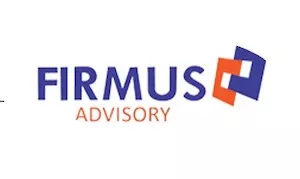What is a Share Certificate
A Share certificate serves as official documents issued by a company to its shareholders, confirming their ownership of specific numbers of shares in the company. In Ghana, the Companies Act 2019 (Act 992) provides guidelines regarding the issuance and transfer of shares in a company.
The issuance of share certificates is a crucial step in the process of transferring ownership of shares. The Companies Act 2019, Section 55(1) states: "Where a company issues shares, the company shall, within two months after the issue of the shares, deliver to the shareholder a share certificate in respect of the shares."
Upon receiving share certificates, shareholders have tangible evidence of their ownership interest in the company. These certificates typically include details such as the shareholder's name, the number of shares owned, the class of shares, and the date of issue.
When it comes to transferring shares in a company in Ghana, several steps need to be followed, involving both the Lands Commission and the Registrar General's Department.
Procedure for transferring shares to a new shareholder in an existing entity
- Agreement:
The transferor (seller) and transferee (buyer) must reach an agreement on the sale and purchase of shares. This agreement may be in the form of a share transfer deed or a share purchase agreement.
- Share Transfer Form:
The transferee must complete a share transfer form. In Ghana, this form is typically known as the "Special Resolution Form" and "Share instrument" as prescribed by the Registrar General's Department.
- Execution of Share Transfer Form:
The share transfer form must be signed by both the transferor and the transferee.
- Stamping of Share Transfer instrument at Lands Commission:
A share instrument indicating the shares and particulars of the transferor and the transferee needs to be prepared and submitted at the Lands Commission for review and stamp. The share instrument must be witnessed by two people. After the share instrument is stamped, it will be further submitted at the Registrar General's Department for the transfer to be effected in the company registration documents.
- Submission to Registrar General's Department:
Once the share instrument is completed and stamped, it needs to be submitted to the Registrar General's Department for amendment.
- Update Share Register:
After registration of the share transfer at the Registrar General's Department, the company must update its share register and company registration documents to reflect the new ownership of shares.
- Notification to Company:
The company should be notified of the share transfer, and the new shareholder should be issued updated share certificates reflecting their ownership.
In summary, the process of transferring shares in a company in Ghana involves completing the share transfer instrument, special resolution, a written resolution by the existing shareholders, obtaining the necessary signaturess, submitting the form to the Registrar General's Department for registration, and updating the company's share register and issuing updated share certificates. This process ensures transparency, legal compliance, and the accurate recording of share ownership changes, as required by the Companies Act 2019.
To view the article in full click here
The content of this article is intended to provide a general guide to the subject matter. Specialist advice should be sought about your specific circumstances.


